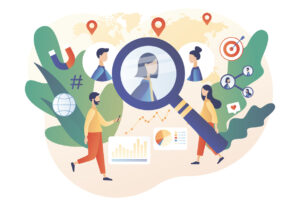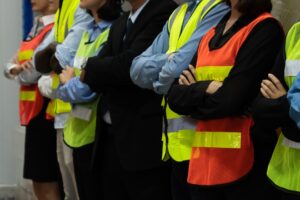The legal dilemma behind saying ‘safety is our No. 1 priority’
You might really mean it, but the well-intentioned message could open you up to lawsuits warns one legal expert.

Businesses are reopening and many marketers have been so focused on trying to bring back customers after COVID-19 shutdowns, they haven’t thought about the long-term harm their current messages might bring. Now, defense lawyers around the country are preparing for the worst.
The problem? Whether on social media, in an advertisement or signage, saying “safety is our No. 1 priority” puts you at risk of a major lawsuit.
Tort law establishes liability for wrongdoing. These laws change from state to state, but across the country, defense lawyers are anticipating a storm of lawsuits as more businesses continue to reopen. It won’t necessarily matter what the lawsuit is about, what the injury is or even when the injury occurs—if a business has ever publicly posted or advertised anything related to safety being its “top” or “No. 1” priority, they run the risk of having plaintiffs’ lawyers use that messaging against them, potentially driving damage awards to nuclear proportions.
Nuclear verdicts are ones in which plaintiffs are awarded tens of millions of dollars in damages—an area of major concern for businesses of all sizes. Lately, juries have been persuaded to switch their focus from businesses’ actual legal obligations to a strict code of absolute safety at all costs and the total absence of danger. And unfortunately, if plaintiffs can point to a company’s own marketing materials that state, “Safety is our top priority,” it will make plaintiff lawyers’ arguments for them!
So, marketers, your lawyers are begging you: Avoid words like “always,” “top,” “first” or “never,” as well as terms like “risk” and “safety.”
Here are some phrases to consider instead:
- We are addressing our employees’ and customers’ health and safety concerns.
- We care about the health and safety of our employees, our customers and our community.
- The health and safety of our employees and customers is our concern.
Safety is the responsibility of all parties involved, not just the business. A retail store might put down markers indicating a line spaced out 6 feet apart, but if the customers don’t stand on them, it doesn’t work. You can provide personal protective equipment (PPE), but if someone takes off their mask to sneeze, it does not provide much help. When you publicly display that safety is your top priority, it diminishes the sense of responsibility for employees and customers to act appropriately. Creating good conditions for health and safety to a reasonable extent is the responsibility of the business. What individuals do within those conditions is their responsibility.
In this regard, the customer isn’t always right. The actions of your customers affect their well-being just as much, usually more, than the conditions you provide. If you’re still unsure if you agree, think of a situation in which your customer acting unsafely may hurt one of your employees. Your employees, just like your customers, expect a reasonably safe environment. By considering each parties’ own responsibility in creating these conditions, you see that the messaging of “safety is our No. 1 priority” doesn’t truly align with your brand.
As marketers, you understand the power of reassuring your customers that safety is important to you. But, as well-intentioned as it is to use safety-first messaging, it is not just legally unsound—it is also likely untrue. How many “safeties” did your company produce today? Probably none. Stop saying that it is the top priority of your company if you are not actually making “safety!”
A business’s first priority is the product or service they provide and the profit it generates. This isn’t cynical; health and safety are values that help you achieve that priority. If you don’t continue to offer profitable products or services, your business will not be around to make safety an important value.
Safety isn’t first, but it is important. As marketers, focus on maintaining a profitable business that creates quality products, services or experiences for your customers and a great place to work for your employees. The truth about safety may not be as easy a pill to swallow as a “No. 1 priority” slogan, but it will help you create marketing messages that don’t put you in legal jeopardy.
Robert F. Tyson Jr. is a trial lawyer at the national defense firm Tyson & Mendes LLP. His book, “Nuclear Verdicts: Defending Justice for All,” is a detailed defense playbook for justice.






